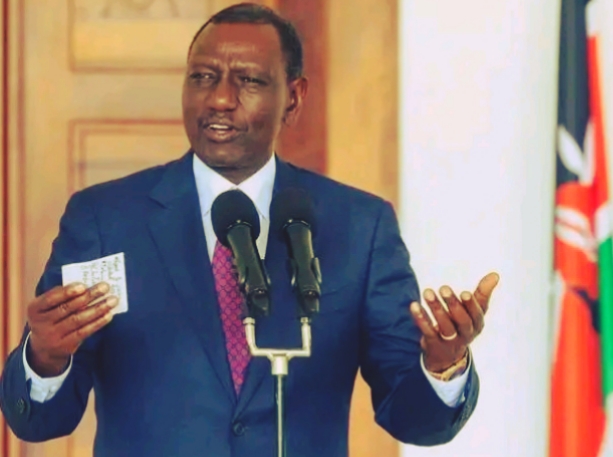
Many Kenyans are eagerly anticipating the outcome of the 2024 finance bill amidst recent disagreements between citizens and their leaders.
However, despite president William Ruto’s recent visit to the United States being seen as a positive development for Kenyan citizens, as it brought agreements to start multi-billion-dollar trade and investment initiatives in Kenya and ensured ongoing strong diplomatic ties between the two nations, the fate of Kenyans remains blurred.
President Ruto’s visit, characterized by an invitation from US President Joe Biden, marked a significant event in Kenyan-American relations.
Such a formal state visit to the US by an African leader is rare. In the last time of history, before Kuffor visited the US in 2008, Mwai Kibaki, the third president of Kenya, had also been welcomed on a state visit by Bush in October 2003.
However, the euphoria surrounding President Ruto’s trip quickly dissipated as Kenyans scrutinized the financial implications.
Reports surfaced alleging that the visit costed the Kenyan government an approximate amount of 200 million Kenyan shillings on the plane.
In response to public outcry, President Ruto defended himself, claiming that only a fraction of the funds came from government coffers, with the majority allegedly sourced from private donations.
The president said that the chartered jet for US trip costed taxpayers less than $77000.
The timing of these revelations coincided with the tabling of the Finance Bill 2024 before the Kenyan Parliament.
This move ignited widespread discontent, particularly among Kenya’s youth, often referred to as Gen Z.
They staged demonstrations across the country, decrying what they perceived as punitive taxation measures that would exacerbate their financial burdens.
President Ruto, in a bid to quell mounting tensions, announced amendments to the contentious sections of the bill.
Despite this concession, the youth activists leading the protests remained steadfast in their demand for a complete overhaul of the proposed legislation.
The demonstrations, characterized as generally peaceful albeit occasionally marred by clashes between protesters and law enforcement, have underscored growing public discontent over economic policies.
Members of Parliament have come under scrutiny, pressured to align their votes with public sentiment regarding the Finance Bill 2024.
Government officials, however, remain resolute in their stance that the bill is essential for funding critical government initiatives.
The outcome of the parliamentary vote, expected in the coming week of June 2024, will determine whether the bill advances or faces further revision.
As Kenya awaits this pivotal decision, the overarching question lingers: amidst allegations of extravagant spending and contentious fiscal policies, is President Ruto truly prioritizing the interests of Kenyan citizens in his engagements?
